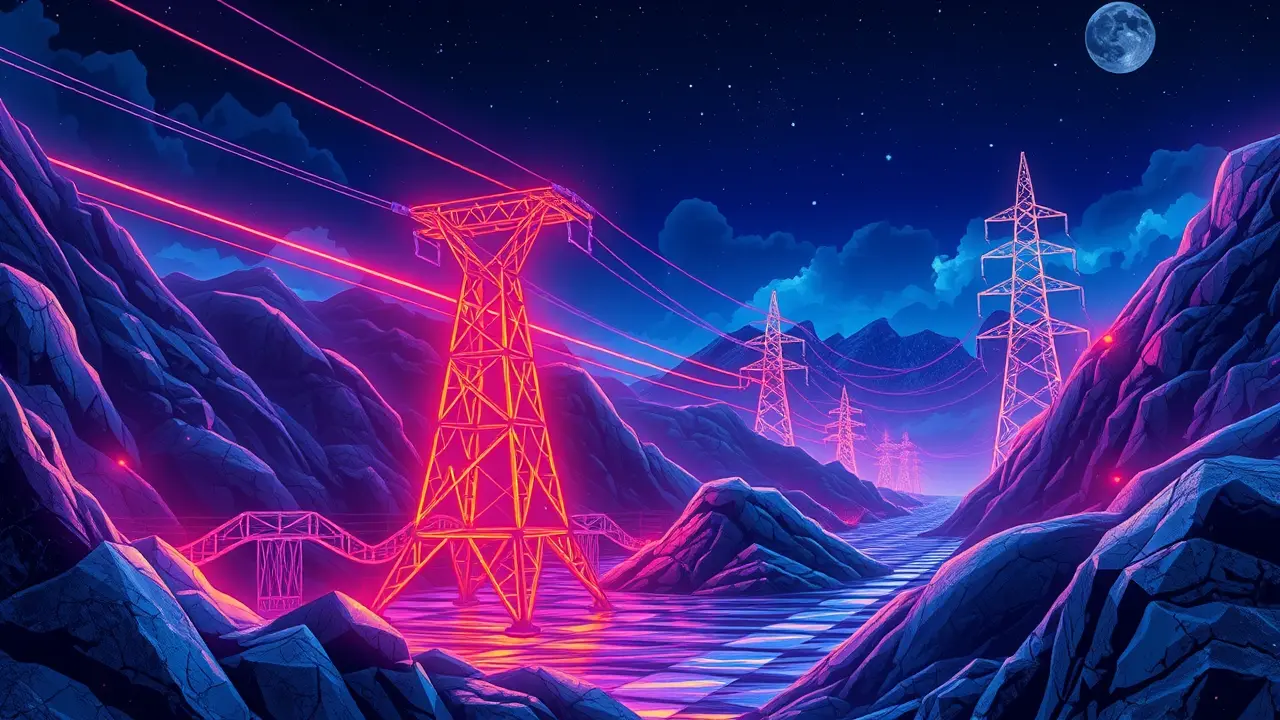Bitcoin miners’ power edge makes them key AI infrastructure players, Bernstein says
The tectonic plates of technological infrastructure are shifting, and the rumble is coming from an unexpected quarter: the Bitcoin mining industry. According to a recent analysis from Bernstein, these miners, long viewed as voracious consumers of electricity, are now poised to become the foundational players in the burgeoning artificial intelligence revolution.This isn't just a speculative pivot; it's a fundamental realignment driven by a single, critical resource that Bitcoin miners have spent years competitively accumulating at scale—raw, uninterrupted power. While the crypto markets obsess over price swings and ETF flows, a far more consequential battle is being waged at the grid's edge, where megawatts are the new currency of technological sovereignty.Bernstein's report highlights IREN as a prime example, a company sitting on a staggering 3 gigawatts of power capacity and already deploying 23,300 GPUs, projecting a $500 million AI cloud revenue run-rate by early 2026. This isn't a side hustle; it's a strategic metamorphosis.To understand why this is so significant, one must look at the core constraints of the AI boom. Training and running large language models like GPT-4 and its successors is an astronomically power-intensive endeavor.Every tech giant from Microsoft to Google is in a frantic race to secure enough energy and build out data centers, a process hampered by lengthy permitting, supply chain bottlenecks, and political friction. Bitcoin miners, in stark contrast, are already there.They are the original high-performance computing specialists, having solved the logistical nightmare of securing and managing immense, stable power loads in often remote, cost-effective locations. Their facilities are built for one thing: maximum computational throughput per watt.This existing infrastructure is a goldmine, a ready-made launchpad for AI compute that would take competitors years and billions to replicate from scratch. Think of it as a military force repurposing its hardened bunkers and supply lines for a new kind of war.The miners' edge isn't just about having power; it's about having the most resilient and economically-optimized power infrastructure on the planet, honed in the crucible of Bitcoin's brutal economic competition. For the AI industry, this represents a potential escape valve from its looming energy crisis.The demand for AI compute is currently on an exponential curve that threatens to outstrip the world's ability to generate electricity. Miners-turned-infrastructure providers can offer a plug-and-play solution, leasing their power and GPU clusters to AI startups and researchers who would otherwise be stuck in a multi-year queue.This democratizes access to high-level compute, potentially accelerating innovation outside the walled gardens of Silicon Valley. However, this transition is not without its profound implications and potential pitfalls.From an investment perspective, it fundamentally re-rates these mining companies. They are no longer purely leveraged bets on the price of Bitcoin; they are now hybrid plays on digital gold and the foundational plumbing of the next internet.This could attract a new class of institutional investor previously wary of crypto's volatility but comfortable with infrastructure assets. Yet, it also raises complex questions.Will this diversification dilute the security of the Bitcoin network itself if miners find it more profitable to run AI workloads than to mine BTC? The Bitcoin hash rate is the network's heartbeat, and any significant migration of power away from it could have unforeseen consequences for its decentralization and security model. Furthermore, the regulatory landscape becomes even more convoluted.These entities will now straddle the worlds of cryptocurrency—often viewed with skepticism by regulators—and critical national infrastructure in AI, a sector governments are desperate to control and secure. The political scrutiny will be intense.Critics might also argue that this merely rebrands the environmental concerns associated with crypto mining. Instead of powering a 'digital casino,' the same energy is now powering AI models that could lead to mass job displacement or even existential risks.The conversation shifts from 'wasted energy' to 'concentrated power,' both literal and metaphorical. The companies that succeed in this new paradigm will be those that can navigate this multi-faceted challenge: operating at the intersection of two of the most disruptive technologies of our time, managing unprecedented energy densities, and convincing both markets and regulators of their indispensable role.This isn't just a business opportunity; it's a strategic pivot that positions Bitcoin miners at the very core of the 21st-century digital economy. They are no longer just securing a blockchain; they are building the engine room for the age of artificial intelligence, and in doing so, they are forcing a re-evaluation of what it means to be a critical infrastructure provider in a digitally-sovereign world.
It’s quiet here...Start the conversation by leaving the first comment.
© 2025 Outpoll Service LTD. All rights reserved.
